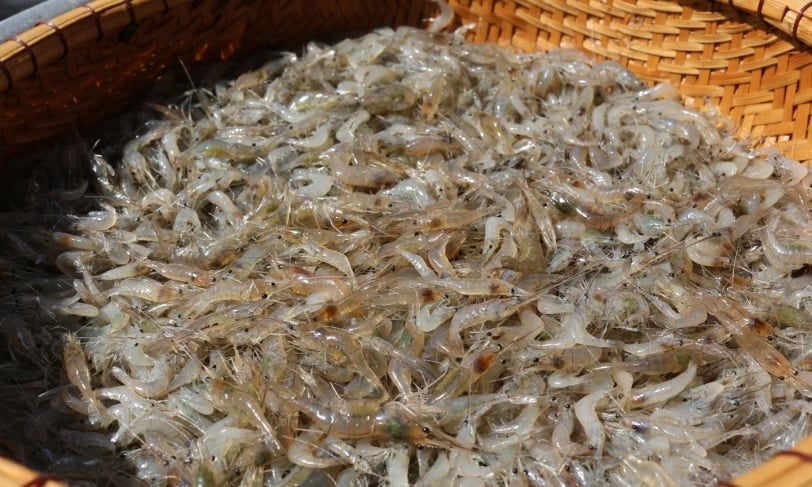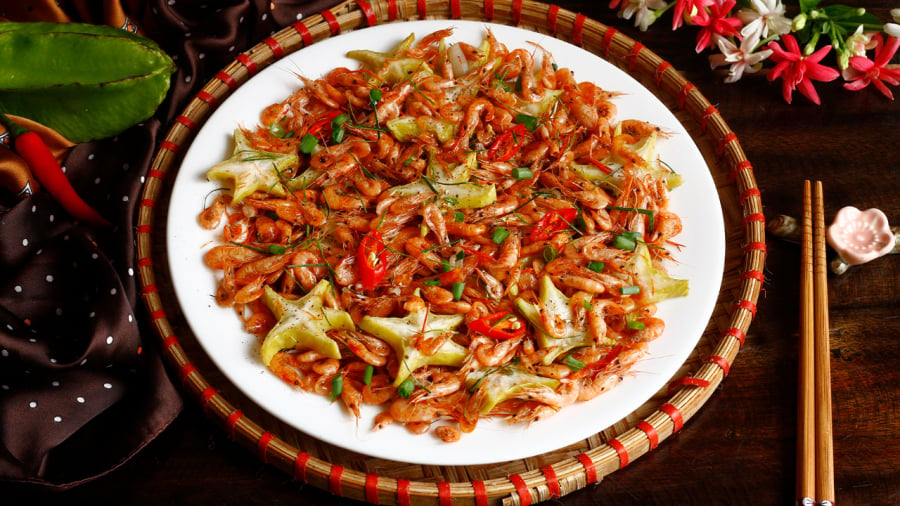Shrimp – A Delicate Delicacy with Surprising Nutritional Value
Shrimp is a familiar seafood variety, often caught in freshwater or brackish waters, especially popular in the Mekong Delta, Central, and Northern coastal provinces. Despite their small size and fragile shells, shrimp pack a surprising punch when it comes to nutritional content.
According to data from the National Institute of Nutrition, 100g of fresh shrimp provides approximately 1,200mg of calcium, which is impressive when compared to the same amount of soybeans at around 350mg. Shrimp are also rich in protein, iron, phosphorus, and B-complex vitamins, contributing to strong bones, preventing anemia, and supporting the nervous system.
One of the standout features of shrimp is their unique structure: most of the calcium is found in the shell, which is soft and easy to eat. Therefore, consuming the whole shrimp, including the shell, ensures a natural and easily digestible source of calcium for the body.

Why Shrimp is Considered a Summer “Delicious Medicine”
Not only in Vietnamese cuisine but also in Chinese culture, shrimp is regarded as a “delicious medicine” for the summer. During hot weather, our bodies tend to lose fluids, feel fatigued, and become deficient in minerals. The high protein and mineral content in shrimp help balance nutrition and support the body’s natural defenses against fatigue.
Shrimp has a sweet taste and a warming effect, providing a quick energy boost without heaviness. Dishes like shrimp and sour fruit stir-fry, shrimp sour soup, or shrimp with stir-fried vegetables are easy to prepare and perfect for stimulating the appetite during hot summer days when our palates tend to be less enthusiastic.
Health Benefits of Shrimp You Should Take Advantage Of
Shrimp is not only delicious but also offers numerous health benefits for the whole family:
- Strong Bones: The high calcium content in shrimp helps prevent osteoporosis, especially beneficial for postpartum women, the elderly, and growing children.
- Blood Enrichment: Shrimp is rich in iron, helping to prevent nutritional anemia, a common issue among women of childbearing age.
- Heart Health: The protein in shrimp is mostly easily digestible and contains low levels of saturated fat, making it suitable for a heart-healthy diet.
- Weight Loss Support: Shrimp is low in calories, nutrient-dense, and satiating, making it ideal for those watching their weight.
How to Select and Prepare Shrimp to Retain Maximum Nutrients
To ensure you get the most out of this nutritious food, opt for fresh shrimp with shiny shells and a natural seafood aroma when purchasing. Avoid shrimp that have turned dull or soft, as these are signs of staleness.
When cooking, favor preparation methods that retain moisture, such as stewing, stir-frying, or light frying. Over-frying can lead to a loss of nutrients, especially calcium. Combining shrimp with vitamin C-rich fruits and vegetables like sour fruit, pineapple, or tomatoes can enhance calcium absorption in the body.
A simple yet delicious summer dish is stir-fried shrimp with sour fruit. With just a handful of fresh shrimp, a sour fruit, and some fried onions and garlic, you’ve got a mouthwatering and nutritious meal for the whole family.

Don’t Overlook This Summer “Gift”
Shrimp is neither a luxury nor a rare delicacy. It is readily available in local markets and supermarkets at reasonable prices. What matters is recognizing the value of this tiny yet mighty seafood and incorporating it into our diets, especially during summer when our bodies need extra nutritional support.






























